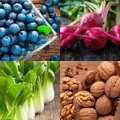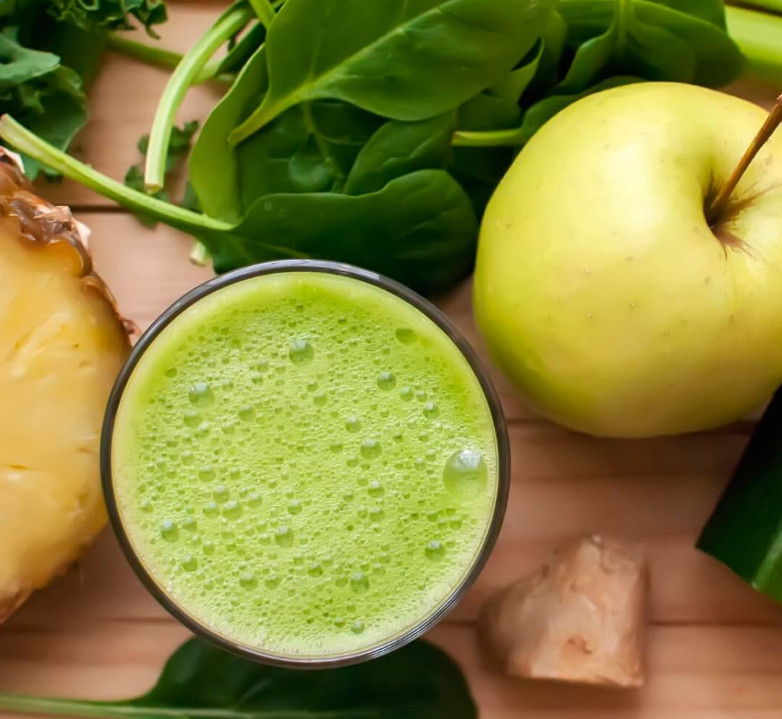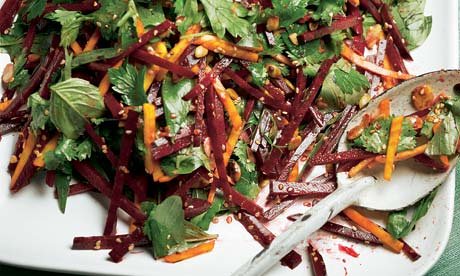
When is inflammation not a bad thing? When the body is injured or ill (for example cuts, scrapes and sprains) the immune system springs into action, bringing the it’s army of white blood cells to the area of concern via increased blood flow. Inflammation, in a healthy body, is the normal and effective response that facilitates healing.
Sadly, we know this isn’t the whole story. When the immune system overreaches we’re met with inflammation in otherwise healthy areas of the body.
Anti-Inflammatory Foods Can Transform Your Health
In a 2014 study on diet and IBD all of the patients who consumed anti-inflammatory foods found enough relief that they were able to discontinue at least one of their medications.
To move toward an anti-inflammatory diet, we primarily move away from the abundance of overly processed, unbalanced diet of the Standard American Diet (appropriately called SAD).
There’s little doubt that the pursuit of a healing diet begins with a menu high in vegetables, fruits, wild meats and sprouted seeds rich with omega-3 benefits. The evidence is clear that such anti-inflammatory foods can regulate the immune system and impact the way inflammation affects our bodies and our lives.
Small, gradual changes are typically more sustainable, easier for the body to adapt to and can make you less likely to go back to your old ways. So an anti-inflammatory diet one step at a time.
Once you find foods that heal your body and satisfy your palate, you can remove the inflammation-causing offenders without feeling deprived.
Top 15 Anti-Inflammatory Foods
1. Green Leafy Vegetables
If you struggle to consume added portions of green leafy vegetables, try this delicious anti-inflammatory juice that incorporates greens alongside some of the strongest anti-inflammatory foods in the list.

2. Bok Choy
Also known as Chinese cabbage, bok choy is an excellent source of antioxidant vitamins and minerals.
3. Celery
The benefits of celery and celery seeds include improved blood pressure and cholesterol levels, as well as prevent heart disease, lower inflammation and fight bacterial infections. Celery is an excellent source of potassium, as well as antioxidants and vitamins.
4. Beets
A marker of a food chock-full of antioxidants is its deep color, and beets are a prime example! Antioxidants fight to repair the cell damage caused by inflammation. Beets have high levels inflammation-fighting potassium and magnesium. This recipe is fantastic!

5. Broccoli
The poster vegetable for healthy eating! Broccoli is high in both potassium and magnesium, and has particularly potent anti-inflammatory antioxidants
6. Blueberries
In addition to being an especially strong anti-inflammatory, blueberries slow cognitive decline and improve memory and motor function. (BONUS!)
7. Pineapple
Pineapple is filled with phytonutrients that work as well as many medicines do to reduce symptoms of some of the most common illnesses and conditions we see today.
8. Wild Caught Salmon
Salmon is one of the best omega-3 foods. Omega-3s are some of the most potent anti-inflammatory substances.
Omega-3 fatty acids reduce inflammation and may help lower risk of heart disease, cancer and arthritis.
9. Bone broth
Bone broths contain minerals in forms that your body can easily absorb and it has the compounds sold as pricey supplements to reduce inflammation, arthritis and joint pain.
Amy’s tip: Make your own bone broth. Eat organic rotisserie chickens, freeze the carcasses. When you have 2 or 3 combine with water, some celery, carrots, onion and parsley in a slow cooker overnight.
10. Walnuts
Add omega-3-rich walnuts to green leafy salads drizzled with olive oil for a satisfying anti-inflammatory meal, or grab a handful for an on-the-go snack.
11. Coconut oil
In a study in India, the high levels of antioxidants present in virgin coconut oil reduced inflammation and healed arthritis more effectively than leading medications. It’s also a natural treatment for osteoporosis.
12. Chia seeds
Chia seeds’ ability to reverse inflammation, regulate cholesterol and lower blood pressure make it extremely beneficial to consume for heart health.
13. Flaxseeds
Flaxseed benefits include anti-aging, hormone balance and cellular health. One of their compounds supports the growth of probiotics in the gut and may also help eliminate yeast and Candida in the body.
Consider grinding them in a coffee grinder to ensure the digestive tract has easy access to their many benefits.
14. Turmeric
Turmeric’s primary compound, curcumin, has been documented for its affects against inflammation in numerous circumstances. A study found that aspirin and ibuprofen are least potent, while curcumin is among the most potent anti-inflammatory and anti-proliferative agents in the world
15. Ginger
Used fresh, dried, or in supplement form and extracts, ginger is another immune modulator that helps reduce inflammation caused by overactive immune responses. Ginger health benefits may even include treating inflammation in allergic and asthmatic disorders.
Avoid Pro-Inflammatory Foods
Processed foods with saturated and trans fatty acids cause inflammation and increase risk factors for obesity, diabetes and heart conditions. The same foods are also likely to be higher in omega-6 fatty acids, which are necessary but only to an extent. In excess and without the balance of omega-3s, omega-6 fats actually create inflammation in the body.
Simple, refined sugars and carbohydrates are more inflammation-causing culprits. Limiting refined grains is an important factor in an anti-inflammatory diet.
Finally, establishing a regular routine of physical activity can help prevent systemic inflammation from building up or returning. An active life fueled by fresh, whole anti-inflammatory foods and unrestricted by processed, toxic compounds can set you on the path toward freedom from inflammation.
